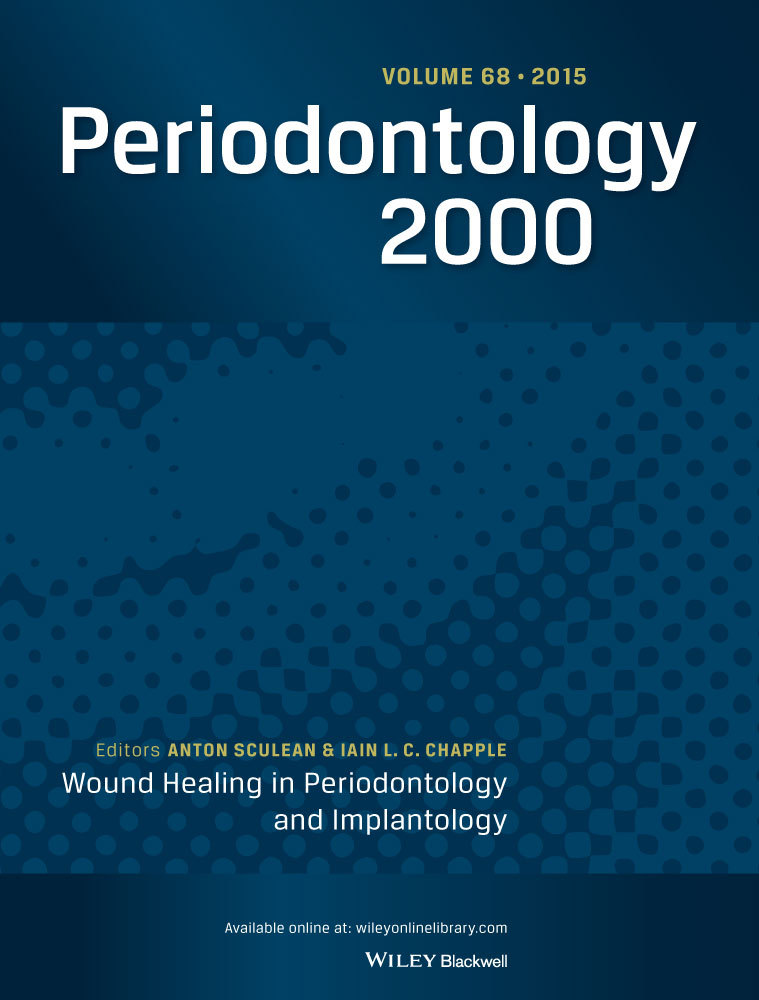Recent advancements in artificial intelligence-powered cancer prediction from oral microbiome.
IF 15.7
1区 医学
Q1 DENTISTRY, ORAL SURGERY & MEDICINE
引用次数: 0
Abstract
Oral cancer is a major global health burden, ranking sixth in prevalence, with oral squamous cell carcinoma (OSCC) being the most common type. Importantly, OSCC is often diagnosed at late stages, underscoring the need for innovative methods for early detection. The oral microbiome, an active microbial community within the oral cavity, holds promise as a biomarker for the prediction and progression of cancer. Emerging computational techniques in the artificial intelligence (AI) field have enabled the analysis of complex microbiome data sets to unravel the association between oral microbiome composition and oral cancer. This review provides a comprehensive overview of learning-based algorithms applied to oral microbiome data for cancer prediction. In particular, this work discusses how typical machine learning (ML) algorithms, such as logistic regression, random forests, and artificial neural networks, identify the unique microbial patterns associated with oral cancer and other malignancies. A search was conducted in Pubmed covering a 10-year period. The goal was to identify previous studies focused on the role of the oral microbiome in oral cancer prediction using AI-powered tools. The search strategy identified 3382 records in total, of which 44 studies met the inclusion criteria. While AI has shown a transformative power in understanding and revealing the oral microbiome's role in cancer studies, its application in clinical settings requires further efforts on standardization of protocols, curation of diverse cohorts, and validation through large-scale multi-centric and longitudinal studies. The integration of AI with oral microbiome analysis holds significant promise for improving early detection, risk stratification, and personalized treatment strategies for OSCC. By identifying unique microbial patterns associated with cancer, AI-driven models offer a noninvasive, cost-effective tool to predict disease progression and guide clinical decision-making. However, translating these advancements into routine clinical practice requires standardized protocols, diverse patient cohorts, and validation through large-scale, longitudinal studies. Once implemented, this approach could transform oral cancer management, enabling timely interventions and improving patient outcomes.人工智能驱动的口腔微生物组癌症预测的最新进展。
口腔癌是全球主要的健康负担,患病率排名第六,其中口腔鳞状细胞癌(OSCC)是最常见的类型。重要的是,OSCC通常在晚期才被诊断出来,这强调了早期发现创新方法的必要性。口腔微生物组是口腔内活跃的微生物群落,有望作为预测癌症进展的生物标志物。人工智能(AI)领域的新兴计算技术使得对复杂微生物组数据集的分析能够揭示口腔微生物组组成与口腔癌之间的关联。本文综述了基于学习的口腔微生物组数据预测算法的全面概述。特别地,这项工作讨论了典型的机器学习(ML)算法,如逻辑回归、随机森林和人工神经网络,如何识别与口腔癌和其他恶性肿瘤相关的独特微生物模式。Pubmed进行了一项为期10年的研究。目的是确定先前的研究重点是口腔微生物组在使用人工智能工具预测口腔癌中的作用。检索策略共确定3382条记录,其中44项研究符合纳入标准。虽然人工智能在理解和揭示口腔微生物组在癌症研究中的作用方面显示出变革性的力量,但其在临床环境中的应用需要进一步努力,包括方案的标准化、不同队列的管理,以及通过大规模多中心和纵向研究进行验证。人工智能与口腔微生物组分析的结合对于改善OSCC的早期发现、风险分层和个性化治疗策略具有重要的前景。通过识别与癌症相关的独特微生物模式,人工智能驱动的模型提供了一种无创的、具有成本效益的工具来预测疾病进展并指导临床决策。然而,将这些进步转化为常规临床实践需要标准化的方案,多样化的患者队列,并通过大规模的纵向研究进行验证。一旦实施,这种方法可以改变口腔癌的管理,使及时干预和改善患者的预后成为可能。
本文章由计算机程序翻译,如有差异,请以英文原文为准。
求助全文
约1分钟内获得全文
求助全文
来源期刊

Periodontology 2000
医学-牙科与口腔外科
CiteScore
34.10
自引率
2.20%
发文量
62
审稿时长
>12 weeks
期刊介绍:
Periodontology 2000 is a series of monographs designed for periodontists and general practitioners interested in periodontics. The editorial board selects significant topics and distinguished scientists and clinicians for each monograph. Serving as a valuable supplement to existing periodontal journals, three monographs are published annually, contributing specialized insights to the field.
 求助内容:
求助内容: 应助结果提醒方式:
应助结果提醒方式:


